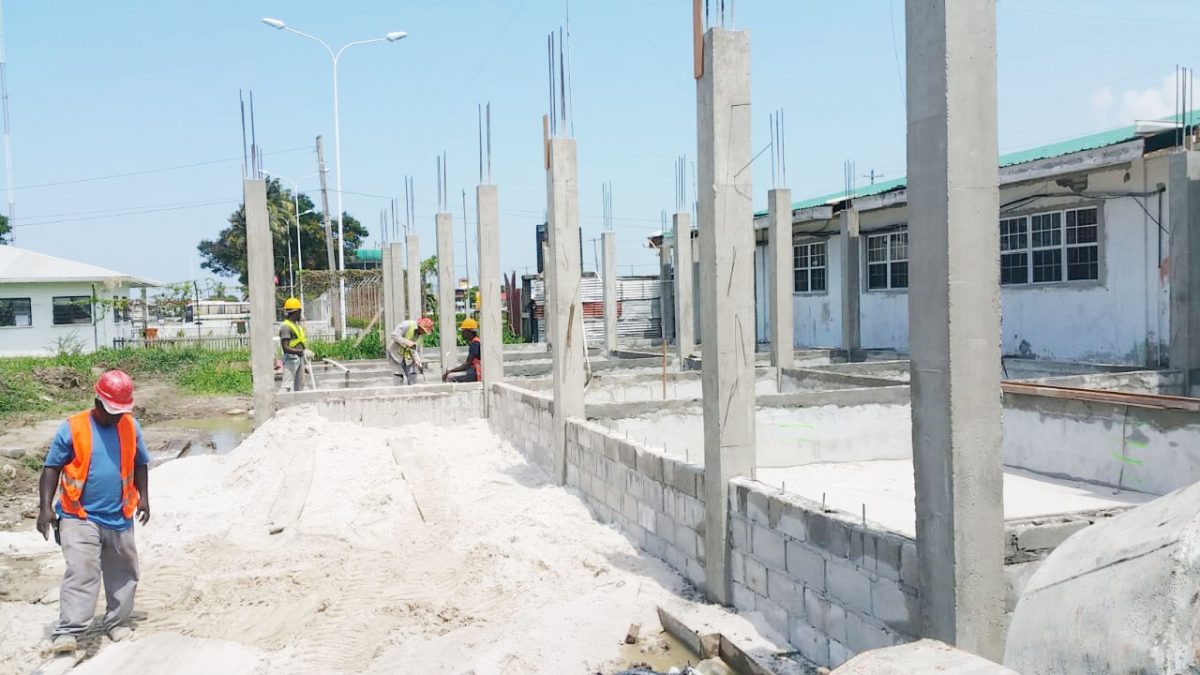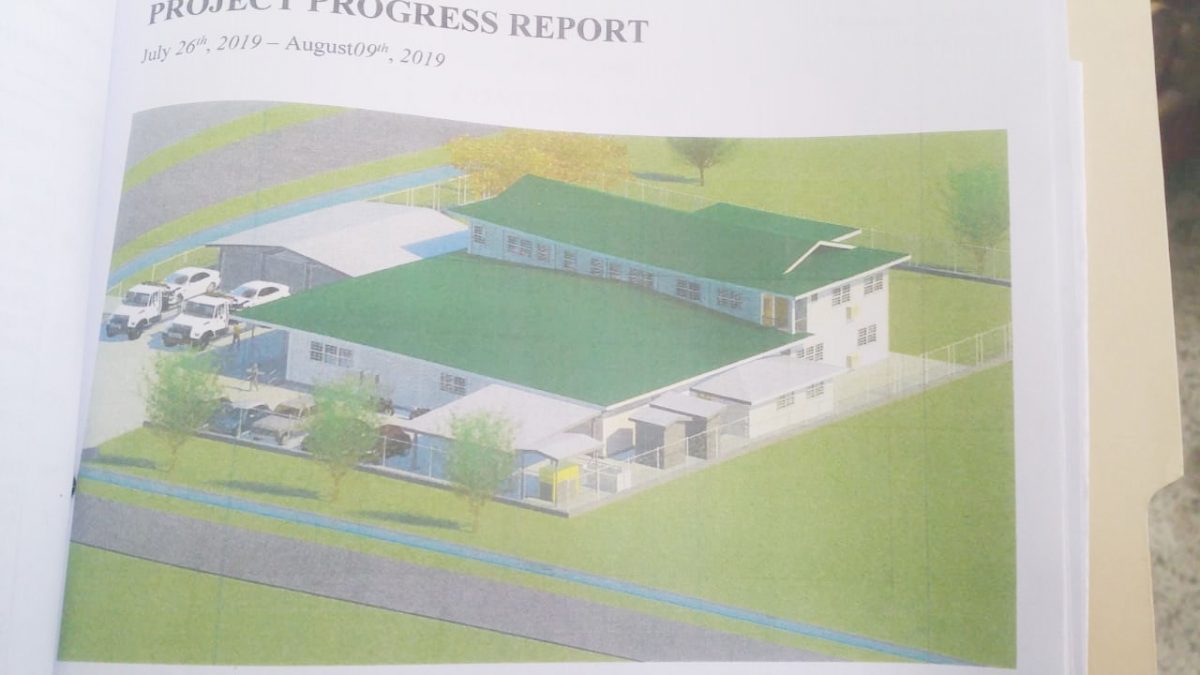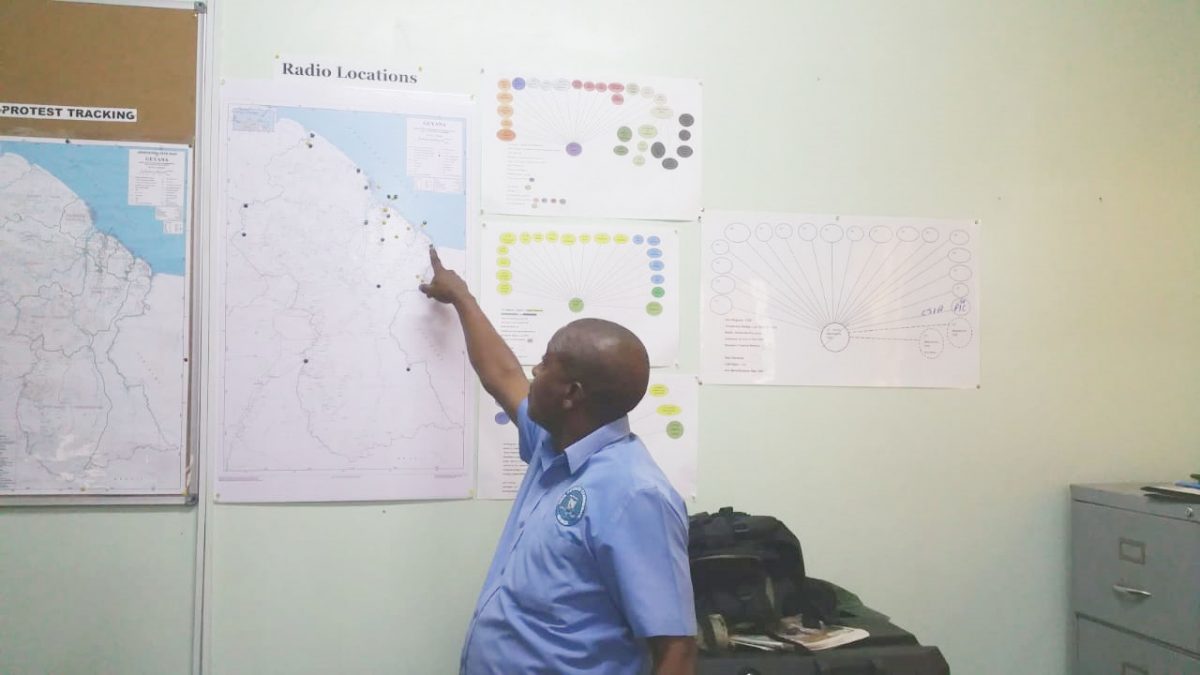As it continues to prepare contingency plans for the start of oil production offshore Guyana, the Civil Defence Commission (CDC) is expanding its main disaster relief command centre while seeking to ensure it has the needed additional staff.
The CDC’s Emergency Command Centre (ECC) at Thomas Lands is currently being expanded at a cost of $66 million.
“The expansion is in preparation and taking in consideration major emergences and operations which might occur offshore and onshore,” CDC Director-General Lieutenant-Colonel Kester Craig told Stabroek News in an interview.

“We are expanding our structure and working to get additional staff. Apart from staff, we have volunteers who are trained to augment our work and they are trained to come and be part of our day to day operations,” he noted.
Craig has assured that come first oil, slated for the first quarter of 2020, the agency will be ready

to deal with a possible oil spill.
Government is crafting a National Oil Spill Res-ponse Contingency Plan, which Craig has said is about 90% done and “will be in place before first oil.”
“Responding to (an) oil spill is not a single agency response. It is a multiagency response. The major responsibility for an oil spill lies with the operators. As part of the plan they have to show the mechanism they have to deal with a worst case scenario. We are satisfied with that,” he noted. “…There is no country, even the United States of America, that has equipment to deal with the worst case type disaster. What they do is they employ, and we have been working with some of the third parties. For example, ExxonMobil employed what you call Oil Spill Response Limited and they have resources …and this is for a worst case scenario, based on a model that we have seen,” he said.
Apart from the help of operators, Guyana has bilateral agreements with a number of countries and agreements as a part of CARICOM for support in the event of an oil spill.
“What many of us don’t understand, too, is that we have the mutual agreement with CDEMA [the Carib-bean Disaster Emergency Management Agency] that supports disaster response and if we need support from international bodies, if we need support from other CARICOM countries, like Trinidad and Tobago, [or] Suriname, based on the existing management system, they are required to support us. That is under an agreement article signed by CDEMA, signed in 1991. We have support from a number of countries, operators and agencies. We are satisfied [that we will be ready],” Craig said.
But in the meantime, the CDC is focusing on in-country preparation and is looking to amplify not only its headquarters but the country’s regional coordination system. “Not every time something happens you have to be flying in resources because that takes time and that can be very costly, so we want to have a base in every region,” he said.
The CDC has also begun installing communication devices throughout the country. “We install HF (High Frequency) radios in hinterland communities. We do radio checks in our emergency operations centre at the back. We have a 24-hour system so people can call the radio at any time, landlines and sat (satellite) phone. Apart from that our staff monitors social media to see if something is happening. We monitor the news,” he explained.
“The CDC has a responsibility, that if anything happens in the middle of the night, to call all of the government ministers. To get them out to be a part of the ECC. We also established (satellite) phones at various locations. The landlines and the cellphones tend to go down in times of emergency, so every year we invest in sat phones so we can use sat phones if those other contacts go down. We will soon be giving our numbers so that people in remote areas, that don’t have access to HF radios and have sat phones, such as the miners and so on, that will have a number to call. We also utilise the military frequencies because they will have in all the regions and communities and ministry of health frequencies. What we are having now [are] discussions with the national data management [authority] to come up with some in-house frequencies. Communication is big for us, very big for us,” he added.
The CDC head says that as Guyana prepares for oil, he doesn’t want the preparedness of the country for an emergency to be troubling the citizenry and is why his agency continues to build capacity in all areas. “We are building capacity…we will be ready,” he said.






